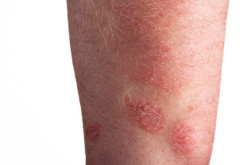Top Class Actions’s website and social media posts use affiliate links. If you make a purchase using such links, we may receive a commission, but it will not result in any additional charges to you. Please review our Affiliate Link Disclosure for more information.

Stevens Johnson Syndrome causes lesions in the mouth, eyes, and on the body. It can also spread to the internal organs. Although the majority of SJS cases occur in people between the ages of 20 and 40, SJS can occur at any age.
Many of the incidents of Stevens Johnson Syndrome arise out of allergic reaction to a drug. More than 100,000 deaths among patients each year in the United States have been linked to allergic drug reactions, some of them caused by Stevens Johnson Syndrome.
What is Stevens Johnson Syndrome?
Stevens Johnson Syndrome (SJS) is a serious adverse skin reaction that is usually an allergic reaction to a medication that was recently started or taken.
It is accompanied by a rash and blisters, causing the skin in the affected areas dies and sloughs off. When more than 30 percent of the skin is involved, Stevens Johnson Syndrome is classified as Toxic Epidermal Necrolysis (TEN).
Both Stevens Johnson Syndrome (SJS) and Toxic Epidermal Necrolysis (TEN) are medical emergencies that require immediate medical attention and often result in hospitalization.
SJS Symptoms
Stevens Johnson Syndrome symptoms may include:
- A rash and skin that begins to turn red or purple
- Hives
- Skin pain
- Blisters in your mouth, nose, eyes and genitals
Before the SJS rash develops, people often experience flu-like symptoms, such as:
- Fever
- Sore mouth and throat
- Fatigue
- Cough
- Itching or Burning eyes
Stevens Johnson Syndrome requires immediate medical attention. A person should seek emergency medical care if they begin to experience any SJS symptoms, especially if they have recently begun or taken a new medication.
Drugs and medications that can cause Stevens Johnson Syndrome include:
- Anti-gout medications, such as Allopurinol
- Pain relievers such as acetaminophen (Tylenol, others), ibuprofen (Advil, Motrin, others) and naproxen sodium (Aleve)
- Medications to fight infection, such as sulfas and Bactrim
- Medications to treat seizures or mental health issues, such as Lamictal or Lamotrigine
This is not a complete list, and it is important to note that any drug has the potential to cause an SJS or TEN reaction in an individual.
SJS Injuries
Recovery from Stevens Johnson Syndrome and Toxic Epidermal Necrolysis can take months, and injuries can be permanent. They may include vision problems, sensitivity to light, scarring or discoloration of the skin, toenails and fingernails that do not grow back normally, sensitivity to the sun, increased sensitivity to temperatures, fertility problems, irritated and dry eyes, and internal organ damage. In the some severe cases, SJS symptoms and injuries can cause death.
Legal action can be taken against the manufacturers of the drugs responsible for SJS. Injured parties may be able to file individual SJS lawsuits against drug manufacturers for failing to warn of possible SJS side effects, or they may file as part of a class action lawsuit, joining a number of people that have similarly suffered from Stevens Johnson Syndrome by the same drug.
Do YOU have a legal claim? Fill out the form on this page now for a free, immediate, and confidential case evaluation. The Stevens Johnson Syndrome attorneys who work with Top Class Actions will contact you if you qualify to let you know if an individual lawsuit or class action lawsuit is best for you. [In general, SJS lawsuits are filed individually by each plaintiff and are not class actions.] Hurry — statutes of limitations may apply.
ATTORNEY ADVERTISING
Top Class Actions is a Proud Member of the American Bar Association
LEGAL INFORMATION IS NOT LEGAL ADVICE
Top Class Actions Legal Statement
©2008 – 2024 Top Class Actions® LLC
Various Trademarks held by their respective owners
This website is not intended for viewing or usage by European Union citizens.
Get Help – It’s Free
Help for Victims of Stevens Johnson Syndrome
If you or a loved one were diagnosed with Stevens Johnson Syndrome (SJS) or toxic epidermal necrolysis (TEN) after taking a prescribed or over-the-counter medication, you may be eligible to take legal action against the drug’s manufacturer. Filing an SJS lawsuit or class action lawsuit may help you obtain compensation for medical bills, pain and suffering, and other damages. Obtain a free and confidential review of your case by filling out the form below.
An attorney will contact you if you qualify to discuss the details of your potential case at no charge to you.
Oops! We could not locate your form.












